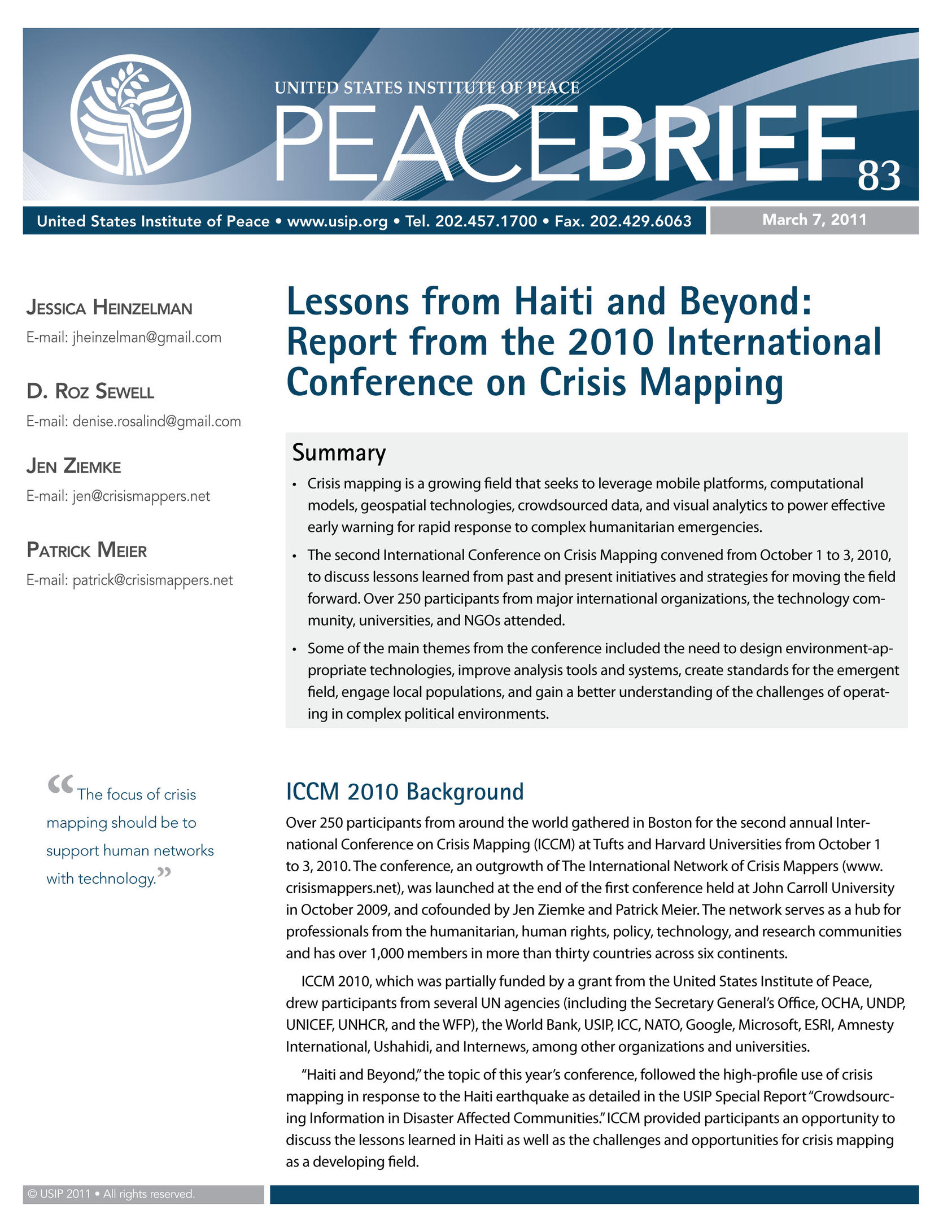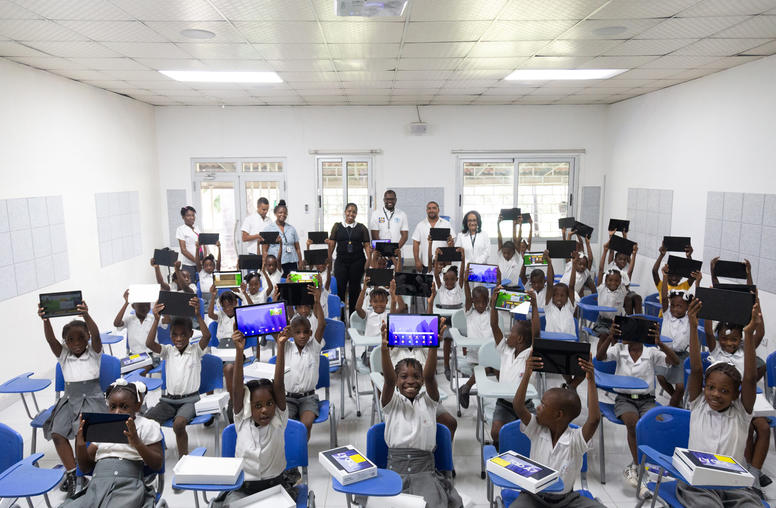Lessons from Haiti and Beyond: Report from the 2010 International Conference on Crisis Mapping
At the International Conference on Crisis Mapping (ICCM) held from October 1 to 3, 2010, researchers and practitioners in the humanitarian and technology fields presented their current work in crisis mapping. This Peace Brief summarizes the overall lessons learned in the field of crisis mapping as identified through presentations, panel discussions, and community-led break-out sessions in the 2010 conference.

Summary
- Crisis mapping is a growing field that seeks to leverage mobile platforms, computational models, geospatial technologies, crowdsourced data, and visual analytics to power effective early warning for rapid response to complex humanitarian emergencies.
- The second International Conference on Crisis Mapping convened from October 1 to 3, 2010, to discuss lessons learned from past and present initiatives and strategies for moving the field forward. Over 250 participants from major international organizations, the technology community, universities, and NGOs attended.
- Some of the main themes from the conference included the need to design environment-appropriate technologies, improve analysis tools and systems, create standards for the emergent field, engage local populations, and gain a better understanding of the challenges of operating in complex political environments.
About this Brief
At the International Conference on Crisis Mapping (ICCM) held from October 1 to 3, 2010, researchers and practitioners in the humanitarian and technology fields presented their current work in crisis mapping. This Peace Brief summarizes the overall lessons learned in the field of crisis mapping as identified through presentations, panel discussions, and community-led break-out sessions in the 2010 conference.
It is written by Jessica Heinzelman and D. Roz Sewell, masters students at the Fletcher School of Law and Diplomacy, in collaboration with Patrick Meier and Jen Ziemke, co-founders and co-directors of the International Network of Crisis Mappers.
Watch presentations from ICCM 2010 at www.CrisisMappers.net video for further details.


